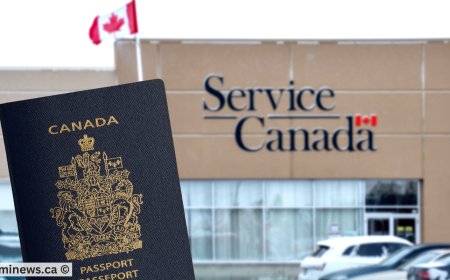Court reporters, medical transcriptionists and related occupations Migration to Canada: A Detailed Guide on Salaries, Professional Responsibilities, and Preferred Locations
Welcome to the pathway to Canada immigration for skilled professionals and trade workers. This guide is specifically tailored for Court reporters, medical transcriptionists and related occupations looking to work and settle in Canada, offering a deep dive into the essential aspects of immigration and employment in this field.
Introduction
Canada is a land of diversity and opportunity, attracting professionals from various fields to build their careers and lives in this vibrant country. In this article, we will be focusing on the career and immigration prospects for Court reporters, medical transcriptionists, and related occupations in Canada. We will delve into the profile description, main job duties, education and license requirements, skills required, median retirements, salary details, and possible visa options for individuals looking to pursue a career in this field. Whether you are a seasoned professional or a newcomer looking to establish your career in Canada, this article will provide valuable insights into the opportunities available in this industry.
What is the Profile Description of a Court reporters, medical transcriptionists and related occupations as per the Canadian National Occupation Classification (NOC) Standards?
Court reporters, medical transcriptionists, and related occupations are professionals who are responsible for accurately recording and transcribing legal and medical proceedings. They transcribe verbatim the conversations, testimonies, and statements made in courtrooms, legislative assemblies, and medical settings. These professionals play a crucial role in ensuring that accurate records are maintained for legal and medical purposes. Court reporters may work for courts of law, legislative bodies, or operate as independent contractors. Medical transcriptionists, on the other hand, transcribe and edit dictations by healthcare providers, including doctors and surgeons, to create medical reports and documentation. They work in hospitals, clinics, and doctors' offices, ensuring that accurate and detailed records are maintained for patient care and legal purposes. Closed captioners and other transcriptionists are also included in this group of professionals.
What are the Main Job Duties of a Court reporters, medical transcriptionists and related occupations in Canada?
- Capture verbatim proceedings in court using stenograph machine or stenomask, ensuring accuracy and clarity.
- Transcribe recorded dictation from medical reports, correspondence and patient information, following established formats and procedures.
- Proofread and edit transcripts for typographical, grammatical errors, missing or incorrect content and formatting.
- Research and locate quotes to ensure accuracy of transcripts and rulings, responding to requests for transcripts promptly and efficiently.
- File and store shorthand notes of court sessions, maintaining confidentiality and organization.
What are the Education, Certifications, and Licensing Requirements to Work as Court reporters, medical transcriptionists and related occupations in Canada?
To pursue a career as a court reporter, individuals must have a high school diploma and typically need to complete a college program focused on court reporting. In addition, obtaining the Chartered Shorthand Reporter (CSR) certificate may be necessary. For those interested in becoming medical transcriptionists, a high school diploma is required along with completion of a recognized medical transcription program. Furthermore, obtaining the Certified Medical Transcriptionist (CMT) certificate is often recommended for this occupation.
What Essential Skills are Required for Court reporters, medical transcriptionists and related occupations to succeed in Canada?
Successful court reporters, medical transcriptionists, and related professionals must possess essential skills such as the ability to transcribe recorded dictation accurately, follow established formats for medical reports and court proceedings, verify transcript accuracy against original recordings, respond to transcript requests promptly, research quotes for accuracy, efficiently file shorthand notes, read back verbatim evidence during court sessions, and verify rulings with the judge. These professionals play a crucial role in ensuring precision and clarity in legal and medical documentation, making attention to detail, strong communication skills, and proficiency in transcription software essential for success in these occupations.
What is the Median Age and Retirement Age for Court reporters, medical transcriptionists and related occupations in Canada?
Skilled professionals working as Court reporters, medical transcriptionists, and related occupations have a median age of 44, indicating that the majority of individuals in this field are in the middle of their careers. The average retirement age for these professionals is 64, suggesting that individuals in this line of work typically work until their mid-60s before retiring. This data highlights the longevity of careers in these skilled professions and the dedication of individuals in the field to continue working into their later years.
How many job openings exist for Other Court reporters, medical transcriptionists and related occupations in Canada, and what's their provincial distribution?
Court reporters, medical transcriptionists, and related occupations have a total of 5 job openings in Canada. The province with the highest number of job openings is New Brunswick, with 3 positions available for qualified individuals. This is followed by Ontario, which has 2 job openings for individuals in this field. It is evident that the demand for court reporters, medical transcriptionists, and related occupations is higher in New Brunswick compared to other provinces in Canada. On the other hand, Ontario has a relatively lower number of job openings in this sector. It is crucial for individuals seeking employment in this field to consider the job market in different provinces before applying for positions.
What is the hourly wage or salary of Court reporters, medical transcriptionists and related occupations in different Provinces of Canada?
Court reporters, medical transcriptionists, and related occupations in Canada earn varying wages depending on the province in which they work. In British Columbia, wages for these professions range from $15.20 at the low end to $29.89 at the high end, with a median wage of $22.00. In Alberta, wages are higher overall, with a low of $23.52, a median of $33.17, and a high of $34.30. In Saskatchewan, the range is from $20.54 to $28.00, with a median wage of $23.00. Manitoba has a lower wage range, from $17.00 to $24.00, with a median of $21.07. Ontario follows with a range from $14.35 to $27.60, and a median of $21.00. Quebec has a slightly higher median wage of $22.02, with a low of $13.86 and a high of $29.07. In New Brunswick, the wages range from $11.75 to $29.00, with a median of $26.44. Nova Scotia follows with a range from $18.00 to $28.40, and a median of $22.00. Lastly, Prince Edward Island has a wage range from $13.00 to $28.60, with a median of $22.00. It is evident that location plays a significant role in determining wages for court reporters, medical transcriptionists, and related occupations in Canada.
What are the various visa options available for Court reporters, medical transcriptionists and related occupations migrating to Canada?
Court reporters, medical transcriptionists, and related occupations have several visa options to consider when migrating to Canada. They can apply for Express Entry Visa Category, which is a fast-track system for skilled workers. Additionally, they may be eligible for Provincial Nominee Programs, where specific provinces in Canada can nominate individuals based on their skillset and work experience. Another option is Employer Sponsored Work Visas, where a Canadian employer can sponsor and hire a foreign worker in this field. These professionals can directly apply under these programs, or there may be other visa options currently open for their profile. To explore all the possibilities and discuss the best route for migration to Canada, individuals can book an appointment with our professionals for personalized guidance and assistance.
Have Questions or Need Assistance?
If you have any queries or require assistance with your immigration plans, we're here to help. Our experienced immigration consultants are ready to provide personalized guidance tailored to your specific needs.
Don't hesitate to reach out and schedule an appointment today. Whether you're seeking clarification on immigration processes, exploring visa options, or need support with documentation, we're dedicated to assisting you every step of the way.
Book an appointment with our team to discuss your immigration goals and receive expert guidance for your journey to Canada.
What's Your Reaction?
 Like
0
Like
0
 Dislike
0
Dislike
0
 Love
0
Love
0
 Funny
0
Funny
0
 Angry
0
Angry
0
 Sad
0
Sad
0
 Wow
0
Wow
0









































































